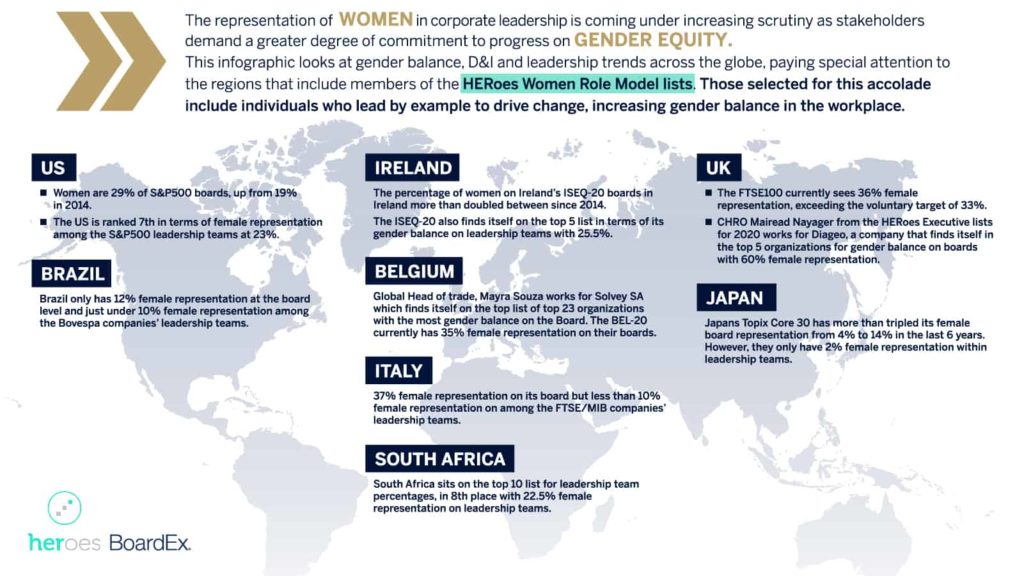As INvolve’s HERoes Women Role Model lists launch today, 9th September 2021, representation of women on boards are still very much a work in progress, despite most FTSE 100 companies having achieved the 33% target set by Hampton-Alexander Review.
With more women entering the workforce every year, it’s difficult to explain why it might take over 135 years to close the gender pay gap, especially for equal work done. A zero pay gap is something that you will not see in your lifetime. So why is it taking so long for progress to be made?
As of 2019, women were paid roughly 83p for every £1 that a man made. Following the biggest setback for women’s equality in a generation thanks to the pandemic, the gap may be widening. During the COVID-19 crisis, women’s jobs have been 1.8x more vulnerable than men’s jobs and 26% of women who became unemployed during the pandemic said it was due to a lack of childcare.
In the UK, most FTSE 100 companies have achieved the target of placing 33% of women on boards by 2020 set by Hampton-Alexander Review, however new research by INvolve, supported by Censuswide, found that only 8% of those surveyed have a clear understanding of their company’s gender equality targets. This suggests that many companies have not created clear targets beyond 2020, or are not making gender equality a business priority. Clearly, despite progress up to 2020, businesses remain very far away from achieving gender parity in the workplace.
Audeliss’ CEO, Suki Sandhu OBE, says: “Post-2021, very few FTSE100 companies have publicly available or external data which showcases a determination to push the boundaries of the Hampton Alexander review by creating ambitious new targets and aims to drive gender parity. It appears that because of the pressure of the COVID-19 pandemic, the emphasis placed on gender diversity and closing the gender divide has fallen by the wayside… Without ambitious targets in place, the disparity women are facing, and have faced for decades, is likely to become entrenched and our businesses, society and economy will suffer because of it.”
As the world starts to adapt to a new way of living and recovers from the pandemic, companies must “stop shelving gender equality and set the precedent” to solve the gender inequality crisis.
This issue is not just a UK problem, equality for women is an issue across the globe as shown by this graphic for the HERoes Women Role Model Lists from BoardEx:

